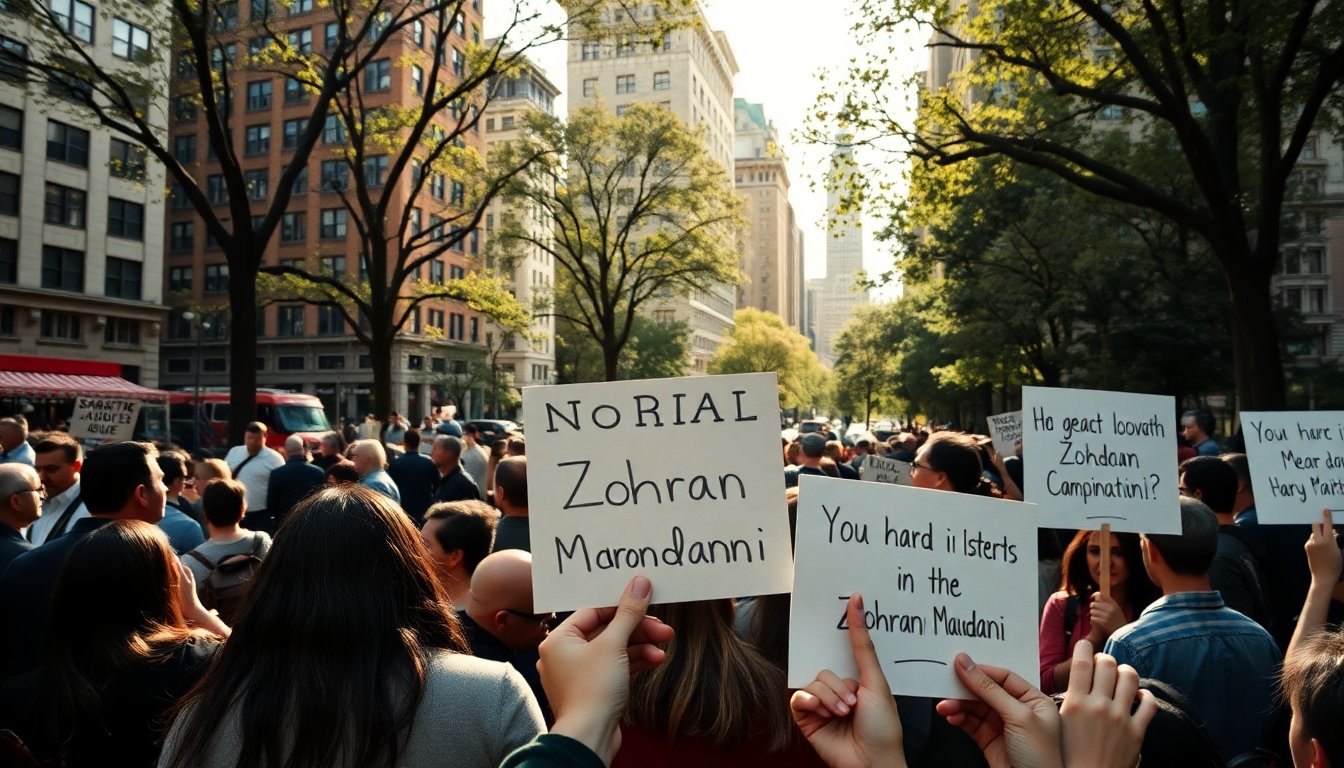Table of Contents
In the fast-paced arena of political campaigns, candidates navigate a landscape where public perception significantly influences their success. This reality is particularly evident in the case of Zohran Mamdani, a Democratic mayoral candidate in New York City, whose past remarks have resurfaced amidst his campaign. As political discourse evolves, understanding the implications of past statements and their impact on current policies is crucial for both candidates and voters.
The Challenge of Public Perception
Mamdani’s journey illustrates the complexities candidates face when their prior statements come back to haunt them. After securing the Democratic primary, he has been thrust into the national spotlight, facing scrutiny not only from his Republican opponents but also from Democrats who view his past rhetoric as extreme. Criticism often hinges on a candidate’s historical stance, which may not align with their current platform, creating a dissonance that voters must navigate.
In interviews, Mamdani has expressed that his opponents seem more interested in debating a ‘mythical’ version of him, based on his tweets from 2020 rather than his current campaign platform. This highlights a broader issue within political campaigns: the challenge of evolving narratives and the need for candidates to demonstrate growth and adaptation in their policy positions.
Shifting Policy Proposals
One focal point of Mamdani’s campaign is his public safety plan, which proposes deploying mental health professionals to assist in situations involving emotionally disturbed individuals, rather than relying solely on police intervention. However, this approach has faced significant backlash. Critics argue that it undermines public safety by potentially placing untrained individuals in dangerous situations. Such criticisms prompt a vital conversation about the role of police and alternative methods to address public safety concerns.
Mamdani’s response to these critiques centers on the idea that his proposed solutions reflect the needs of New Yorkers, contrasting sharply with what he describes as outdated policies from established politicians. By positioning himself as an innovator in public safety, he aims to resonate with constituents seeking change. However, this strategy necessitates effective communication of how his past views have evolved to align with his current proposals.
Long-Term Implications for Political Narratives
The evolution of Mamdani’s positions raises questions about authenticity in political campaigns. Former New York Governor Andrew Cuomo has publicly challenged Mamdani’s credibility, questioning the sincerity of his claims of having changed his stance. This situation underscores a critical aspect of modern politics: the importance of authenticity and consistency in a candidate’s messaging. Voters are increasingly discerning, and perceived inconsistencies can lead to skepticism and distrust.
As Mamdani navigates his campaign, he must address not only the criticisms rooted in his past statements but also articulate a clear vision for the future that resonates with voters. This involves acknowledging previous positions while convincingly presenting a transformed perspective that aligns with current societal needs. The challenge lies in balancing honesty about one’s past with the aspirational vision necessary for garnering support.


